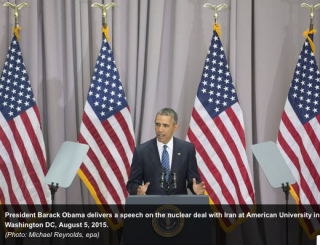Without a congressional majority vote and public backing, next president can just abandon it.
The Framers of our constitution probably would have regarded the nuclear deal with Iran as a “treaty,” subject to a two thirds ratification by the Senate. At the very least they would have required Congress to approve the agreement by a majority vote. It is unlikely that it would have allowed the President alone to make so important and enduring an international agreement.
If President Obama doesn’t treat the Iran agreement with more respect, all his arguments today are beside the point. The agreement won’t have the force of law.
Article II, section two of the Constitution states that the president “shall have the power, by and with the advice and consent of the senate, to make treaties, provided two thirds of the senators present concur…” Although the Constitution did not provide a clear description of the types of international agreements the Framers viewed as “treaties,” there is evidence that they included significant and long-term commitments with foreign countries. Some early versions of the Constitution allocated treaty-making powers solely to the Senate, but Alexander Hamilton argued that “joint possession of the power in question, by the President and Senate, would afford greater prospect of security, than the separate possession of that by either of them.” He thought it unwise to give a single person all the power to shape the country’s relationship to the rest of the world. He believed that the public is much better protected from abuse under the Constitution than it was under the Articles of Confederation, which rested the power solely in the hands of Congress.
Source: Alan M. Dershowitz, http://www.usatoday.com
 Listen Online
Listen Online Watch Online
Watch Online Find a Station in Your Area
Find a Station in Your Area










 Listen Now
Listen Now Watch Online
Watch Online
